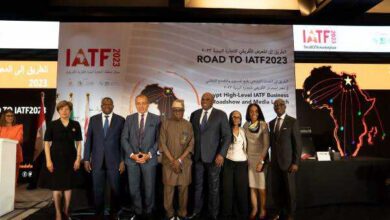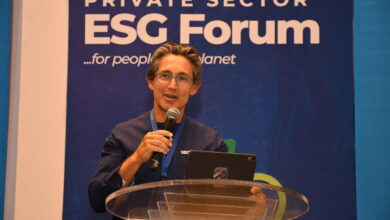Commercialisation of healthcare undermined COVID-19 pandemic responses in Nigeria, says report

As public health advocates, activists want universal public healthcare for all.
A new report released by the Global Initiative for Economic, Social and Cultural Rights (GI-ESCR), in partnership with the Justice and Empowerment Initiatives (JEI) and Corporate Accountability & Public Participation Africa (CAPPA), has exposed how the commercialisation of healthcare undermined responses to the COVID-19 pandemic in Nigeria.
The report, titled: The Failure of Commercialised Healthcare in Nigeria During The COVID-19 Pandemic: Discrimination and Inequality in The Enjoyment of Right to Health, lamented the harmful impacts on Nigerians’ right to health.
It also provided details of how government policies and international development actors have encouraged the growth of private and commercial healthcare since the late 1980s, especially after the Structural Adjustment Programme (SAP) of the General Ibrahim Babangida (rtd) regime.
The report, authored by GI-ESCR and JEI, revealed that more recently, successive policies have listed the creation of an enabling environment for public-private partnerships and private sector engagement in healthcare between 2004 and 2018.
“The National Strategic Health Development Plan (2018-2022) sets out as a goal the promotion of public-private partnerships in healthcare. As a result, an estimated 60 per cent of healthcare services are provided by the private sector, among the largest shares in Sub-Saharan Africa.
“This highly commercialised system has largely failed to cope with the COVID-19 pandemic. Nigeria has a critical shortage of lifesaving equipment to treat acute cases of COVID-19, such as ventilators, oxygen and qualified specialists.
“Nigeria had only 500 ventilators in May 2020, against the 20,325 needed to address the epidemic and only 0.17 intensive care unit (ICU) beds per 100,000 inhabitants. Unfortunately, this was to be expected.
“Healthcare services are severely underfunded: Health spending as a share of general government expenditure reduced from 7.3 per cent in 2006 to as little as 4.4 per cent in 2018, below similar African states like South Africa and Kenya and far below the 15 per cent of their annual national budget to which the African Union States committed to in the Abuja Declaration,” the groups stated.
Executive Director of CAPPA, Akinbode Oluwafemi, who spoke in company of Enyo Okoko of JEI and Rosella De Falco of GI-ESCR, canvassed increased government funding for the health sector with 15 per cent of budgetary allocations to meet the Abuja commitment and expand the availability of quality, well-coordinated public healthcare services.
They also advocated a reversal of the current policies intended to encourage higher for-profit private sector engagement in healthcare and ensure that all healthcare providers are strictly monitored and regulated at all levels, as well as take concrete steps to ensure universal access to social healthcare insurance or another pre-pooled financing scheme.
Akinbode said: “Commercialisation of healthcare services is not what Nigerians need. It will only lead to costs that are unaffordable for the poor and vulnerable. They need is healthcare service that is publicly funded and available to all irrespective of social and economic status.”
De Falco, who is Programme Officer on Right to Health at GI-ESCR, said: “Commercialisation and privatisation of healthcare services hinder realisation of the right to health in Nigeria. Public healthcare systems are more resilient to shocks such as pandemics and are fundamental for the realisation of the right to health.”
Co-Director at JEI, Andrew Maki, said: “Access to quality health services should not be determined by whether one is rich or poor. The government must do more to guarantee the right to health for all Nigerians, irrespective of their status.”




